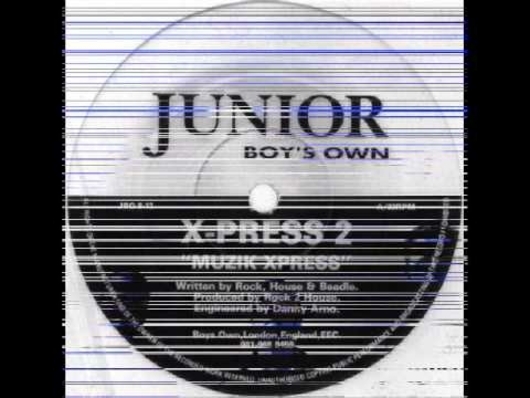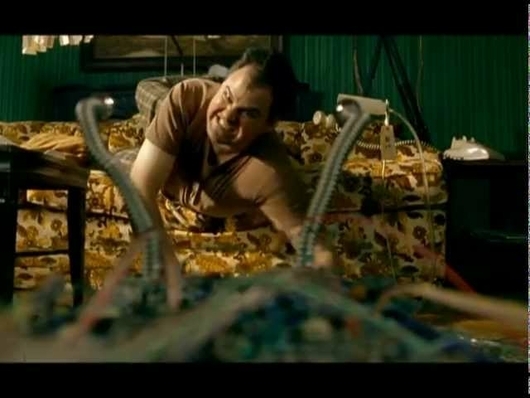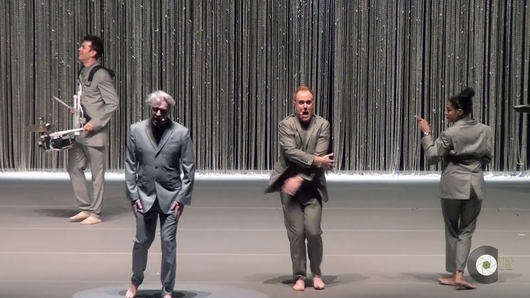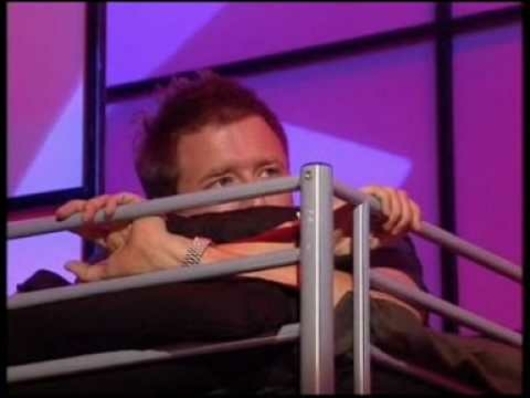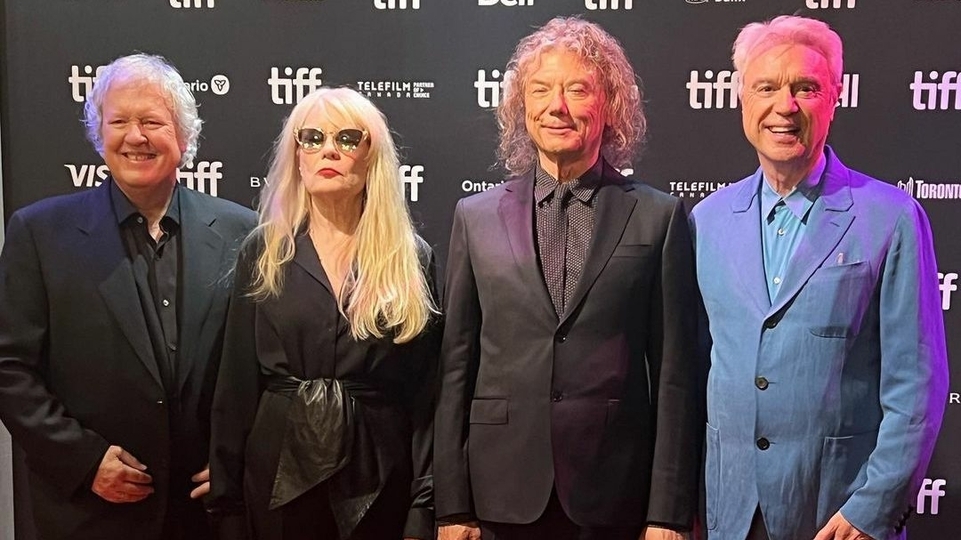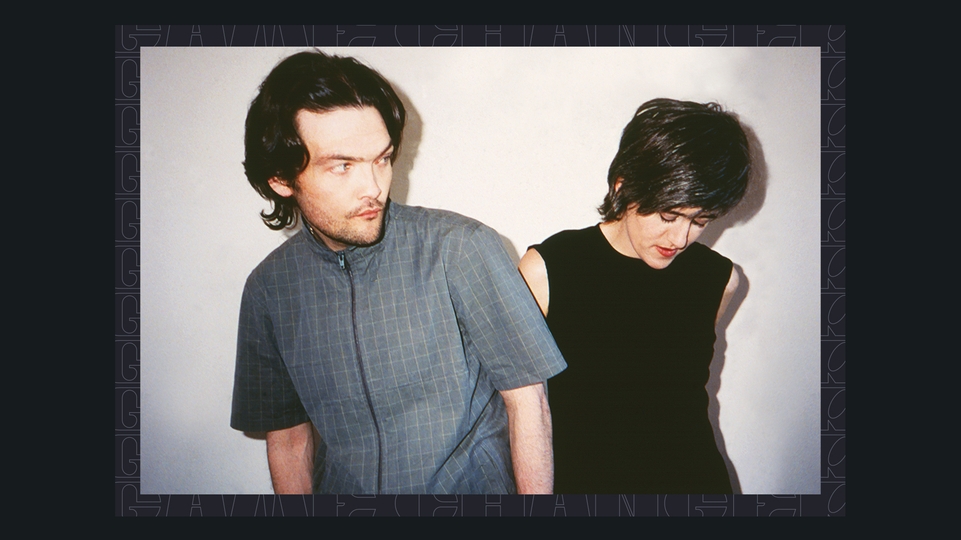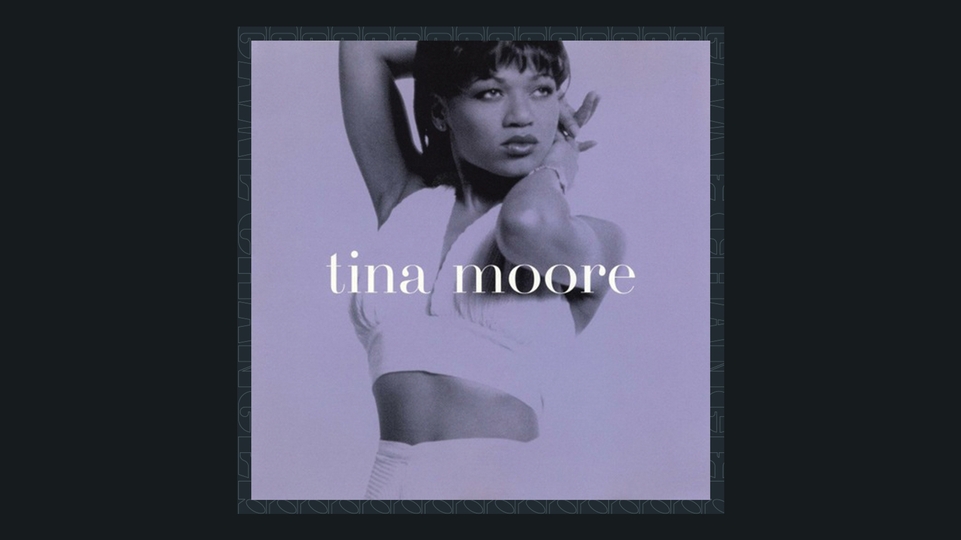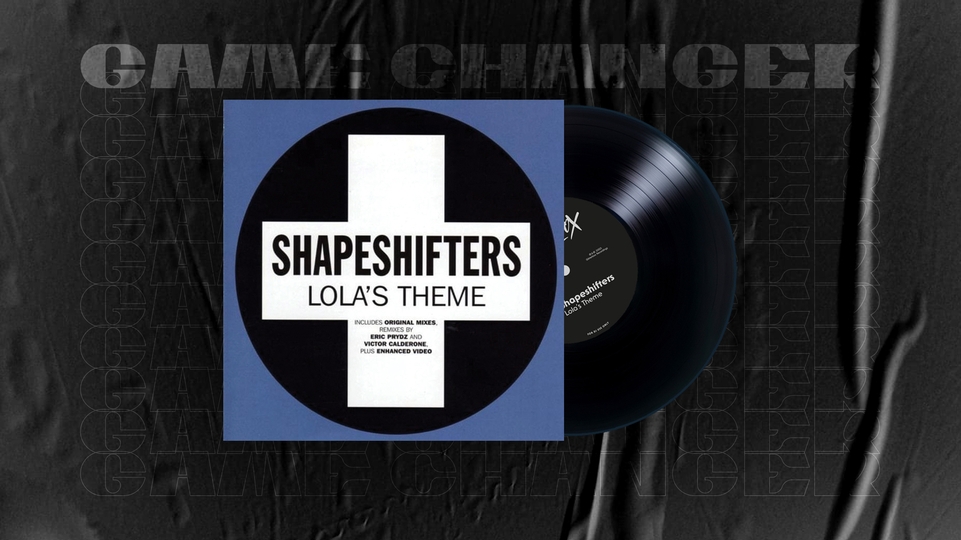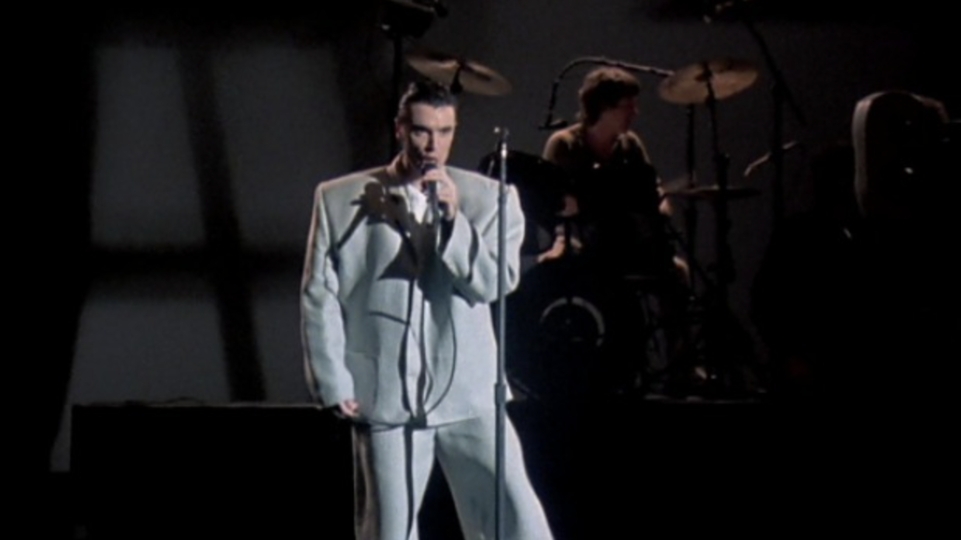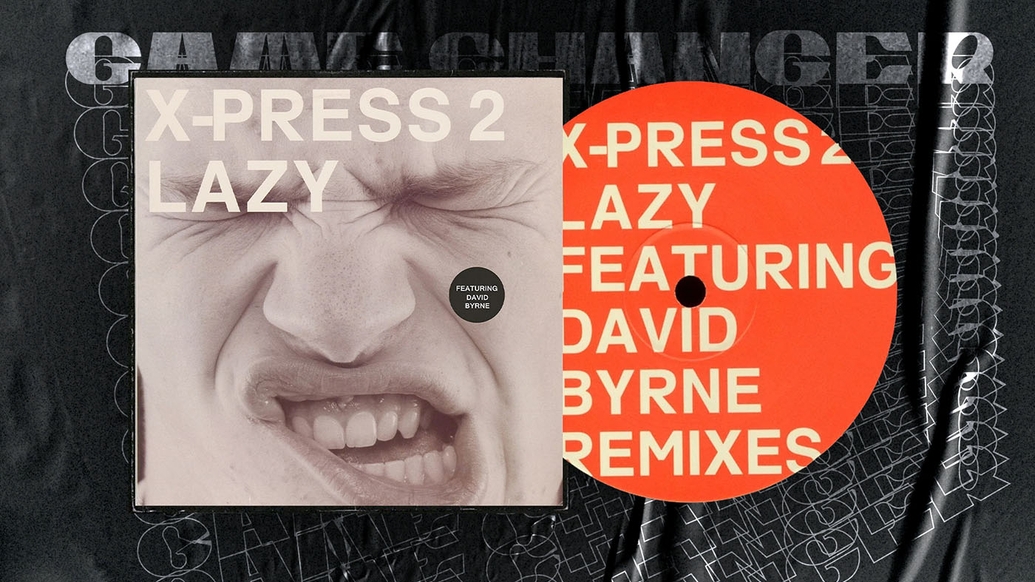
How X-Press 2 and David Byrne's 'Lazy' became the timeless house ode to doing nothing
Released in 2002, a dream collaboration between UK house heroes X-Press 2 and Talking Heads' David Byrne, ‘Lazy’ lit up clubs and the pop charts alike. Here, Dave Jenkins talks to the group’s Ashley Beedle, Rocky and Diesel about how the track transcended generations and genres to become a timeless hit
“Who even writes a bloody dance tune called ‘Lazy’?” laughs Ashley Beedle. Fellow X-Press 2 founders Rocky and Diesel chime in with the chuckles, as we congregate on Zoom one innocuous sunny March morning. Beedle may have left the outfit in 2009, but it’s clear their friendship and chemistry remains as strong as it was when the three of them first collaborated. That was back in 1992, 30 years ago now, and 10 whole years before they created one of the most distinctive and universally loved deep house mega-hits of all time, 2002's 'Lazy'.
To appreciate where ‘Lazy’ came from, we need to go back to the trio’s first studio encounter together. All part of that first generation of UK DJs who helped guide the UK’s thriving funk and soul movement into the blossoming house phenomenon, Ashley, Rocky and Diesel were friendly with each other through flyers, lineups and various other roles in the London scene. Their eventual collaboration was willed into existence by iconic and influential UK house pioneer, Boys Own co-founder Terry Farley. ‘Muzik Xpress’ was the result.
X-Press 2 have had two game-changers for the price of one: ‘Muzik Xpress’ is another unarguable, heavily influential classic from the enduring trio. Farley was the first DJ to ever play it, as he took a dubplate up to Leeds. “The place went bananas on all accounts,” grins Rocky. “On the way back, a little more refreshed, he’d listened to the cassette a dozen times, and by the time he was home, he’d declared it as ‘the best tune he’d ever heard!’”
The track was inspired by a shared love for the cult 1978 disco record ‘Happy Music’, and a deep appreciation for both US and European beats. It captured the essence of where the UK house sound was at in 1992, post-acid house. “We loved Hardfloor and the sounds coming from Germany and Belgium, and we loved the sound of US house music, things like Wild Pitch, DJ Pierre,” explains Diesel.
“Geographically where we sit as a country, it was natural,” adds Rocky. “But you’ve also got the whole diaspora coming into North-West London, loads of different cultures and people, so that was always going to be felt in the music.”
The music was felt by the people, too. ‘Muzik Xpress’ was officially released in 1993. A series of versions landed not long after, including the funkier ‘London Xpress’, a huge anthem at burgeoning institutions like Cream, Ministry Of Sound and Heaven. “We were just really enjoying being on the scene,” Beedle recalls. “Gay culture and clubs were a founding influence. Trips to New York and all that stuff. We were soaking everything in.”
“Going to Sound Factory in 1994 remains one of the best nights of my life,” Rocky adds. “We used to hear stories of Junior Vasquez playing a 20-minute version of ‘Muzik Xpress’ using two records.” Moments and memories like these are at the heart of X-Press 2, and their sound
is at the heart of that second mid-’90s wave of hugely influential, and increasingly global, house music. Other late-night sluggers like ‘Hip-Housin’, ‘Rock 2 House’ and ‘The Sound’ all landed between ’93- ’96. But then, as quickly as Terry Farley had brought them together, the name X-Press 2 temporarily disappeared.
You see, this wasn’t the only alias the trio had up their sleeves. Running in tandem was their Ballistic Brothers project. A looser collective that also comprised Nuphonic Records founder Dave Hill and keyboard player Uschi Classen, it was the soothing hip-hop yin to complement X-Press 2’s late night raging yang.
“I have dear memories of both projects,” says Beedle. “Ballistic Brothers was a laid- back theme, while with X-Press 2 it was much more like, ‘Right! We’ve got to make a killer dancefloor banger!’”
“We could do what we liked,” adds Rocky. “We’d come in with a bunch of ideas. One day, maybe Diesel and Dave would take the reins. Maybe one day, Ashley would come in with a keyboard player. It was nice to have that opposite outlet.”
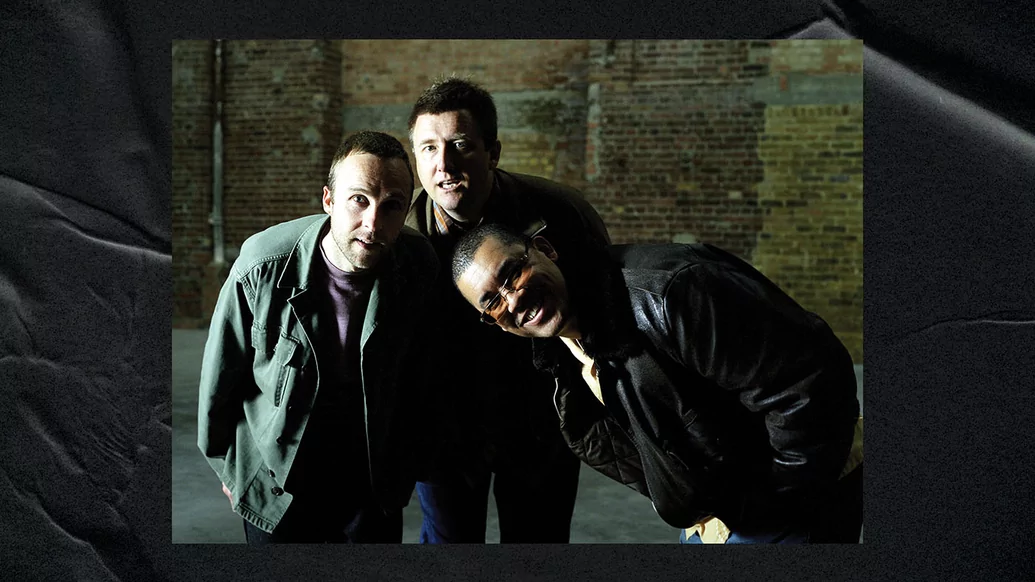
Over the course of ’95-’98, Ballistic Brothers gave the world two studio albums and a series of 12”s and EPs, all of which, once again, captured another mind-blowingly fruitful and wildly creative moment in ’90s UK music. Most importantly in the case of ‘Lazy’, it was Ballistic Brothers that had attracted the attention of David Byrne.
Founder of Talking Heads and one of art-rock’s most admired, provocative and innovative singer/songwriters, he was looking for a band to tour with him on Talking Heads’ 1997 European tour. “We were flattered, but had to say, ‘Sorry, we’re not a band, we’re just three DJs’,” admits Rocky. All three of them were huge Talking Heads fans and would have loved the opportunity, but they knew they weren’t the right fit for Byrne’s request. Morcheeba got the job in the end. Mercifully, they kept hold of Byrne’s contact details.
Fast-forward to 2000, and they returned with their first X-Press 2 track in four years; the powerful club bulldozer ‘ACDC’. Magnetised through a particularly inspiring trip to Miami Winter Music Conference, a Danny Tenaglia set and an invitation to remix Green Velvet, suddenly the trio found themselves with a new sound and a new record deal.
“I’d say the label move had an influence on our sound as well,” explains Ashley of their move from JBO to Skint. “The house groove at the time was what I’d describe as ‘rolling’. Very percussive, very tough, basslines were the lead instrument. The album came together very quickly, in fact the longest track to make was ‘Lazy’.”
The album was ‘Muzikizum’, an LP that still stands tall today as a full spectrum snapshot of turn-of-the-century house music, a time when the likes of Layo & Bushwacka, Darren Emerson, Underwater Records and Subliminal Records were prominent flavours in the melting pot.
The rolling sound Ashley speaks of is best felt in tracks like ‘Smoke Machine’, which rumbles like slo-mo four-to-the-floor jungle, and the precision machine soul of ‘Supasong’, a deeply funky house/techno hybrid. But amid these late-night missives were moments of total house soul; the dreamy, hopeful Steve Edwards-fronted ‘Call That Love’, the dubby euphoria of ‘Angel’ and, of course, ‘Lazy’; a far-out deep house palate cleanser that landed slap-bang in the middle of the chaos of ‘Muzikizum’... and almost featured Rocky and Ashley on vocals.
“I guess they sounded a bit Prince-like, but a lot worse,” laughs Ashley. “Our engineer, a guy named James Brown, said, ‘This sounds a bit Talking Headsy. Have you still got David’s number?’”
David was keen. In fact, he sent the vocals back as an mp3 email attachment within a month of them calling him. “I’ll never forget it,” adds Rocky. “We put it through the mixing desk. Our music coming out of one side, all his stuff coming out of the other side. We were all there like, ‘Oh my god’. At points, he’s clucking like a chicken on there, at other points there are these mad organ noises that didn’t fit at all. It was so out there. Just nuts.”
In among the clucks, noises and nuttiness, however, were the iconic lyrics that became ‘Lazy’. The trio later found out he’d taken inspiration from a poster for the Lazy Dog club-night run by Buzzin’ Fly founder Ben Watt and Jay Hannan. A regular Sunday bash at Notting Hill Arts Club founded in 1998, by 2000, they were hosting Lazy Dog nights in New York. “Apparently David saw the poster and loved the idea of a club-night called lazy,” says Rocky. “As soon as we heard this, we rang Ben and Jay and said, ‘You won’t believe this!’”
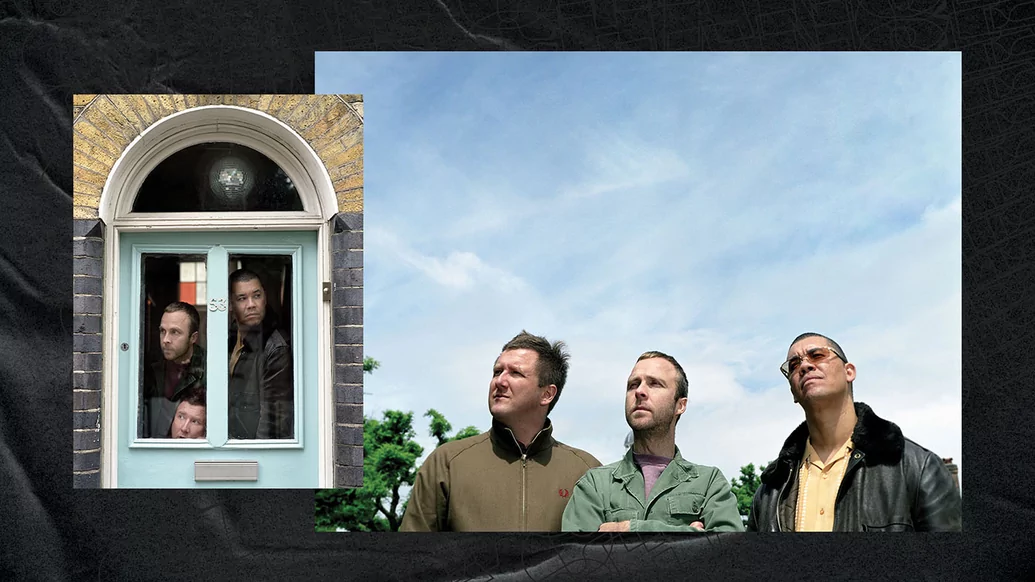
Plenty more unbelievable things happened from the moment David’s vocals came into the band’s life. The first being the moment they started to share the song outside their own circle. The first person to hear it was another legendary house music figure, Pete Heller. “I played it down the phone to him,” recalls Rocky. “He said, ‘Mate, that’s a Top 10 pop record!’ I was like, ‘Really?’ At that point we thought, ‘Maybe we’re onto something?’”
But the real moment they knew they had something was the first time they played it. It was at Fabric, late summer 2001, during one of their first ever six-deck performances. “We played it at midnight when we started, and it went down okay,” Rocky recalls. “We played it again around 3am and people were like, ‘Oh, there’s that song again!’ Then we played it at 6am, and it was mental. Everyone was singing along. It went off!”
This was the moment they knew they had something special on their hands. Unbeknown to them, a friend of Byrne’s was on the dancefloor that night, and saw the reaction. It wasn’t long before they found themselves on a flight to New York. “It was all a bit, ‘Wow, it’s David Byrne!’” laughs Diesel. “We were cracking jokes out of nervousness. I think he was fascinated by us — these English dudes who’d ended up creating something with him. There was a gap between him sending us the vocals and us finishing the tune. He’d not forgotten about it, but he also wasn’t aware of how big it had become.”
Meanwhile in the UK, ‘Lazy’ was getting bigger by the day. The alchemy of it was perfect for the era; on dancefloors, it was universal among all house and techno DJs, and the readily available acapella lent itself to myriad mash-ups and creative mixes, giving the song even more ubiquity. But essentially, it was the Byrne factor that truly galvanised the success of the song.
With ‘Lazy’, he made house music palatable for older rock fans who had previously turned their noses up at dance tunes, including radio executives who were beginning to accept that dance music wasn’t the sole preserve of late night specialist shows. The bizarre-yet- universally relatable lyrics were also vital. They spoke to every walk of life, transcending any specific demographic. “David is a great man in terms of lyrics, he flips things so well,” considers Ashley. “Listen to ‘Psycho Killer’ and how he plays around with it. He quotes Otis Redding, and it’s like, ‘How did he do that?’ He flips words like a jigsaw and it’s up to you to make up your own path. I think he had a lot of fun with ‘Lazy’.”
In fact, they all had fun. When ‘Lazy’ was finally released and went straight into the UK Top 40 at No.2 (held off the No.1 spot by Pop Idol star Gareth Gates), the obligatory Top Of The Pops performance was offered... which they duly ‘performed’ from beds and sitting at a desk. Up there with The Orb playing chess as one of the most surreal appearances on the show, it was a great literal reflection of the title, but it almost never happened.
“The producers were adamant that we had to pretend we were playing keyboards,” explains Rocky. “We didn’t want to lie, so refused to do that. It was getting very close to them saying we couldn’t do it. But eventually they let us, and it’s still my mum’s proudest moment to this day. Me on a bunk bed on TV doing nothing!”
Many other surreal and premiership mum- impressing moments have happened since — both at the time, and much more recently. While ‘Lazy’ had made them global touring headliners on the underground in the early 2000s, it was also grabbing plenty of attention in the mainstream, winning them an Ivor Novello award. In April 2003, the trio found themselves suited, booted, congratulated by Brian Wilson and slapped on the back by none other than Bono.
“That was just crazy. Like a real ‘we made it!’ moment,” Ashley smiles. Decades later, those moments still continue to crop up as the song’s legacy lives on. In 2019, it became part of David Byrne’s American Utopia Broadway show: a stunning, conceptualised and choreographed medley of Byrne’s most iconic hits and personal favourites filmed with a troupe of performers and dancers. Stylised in his own inimitable way, the recorded movie version is directed by none other than Spike Lee.
“I think that’s it for me,” ponders Diesel. “From that small seed of an idea, going from an underground vocal record that becomes a daytime radio record, then goes to the top of the chart, then gets an Ivor Novello and ends up in David Byrne’s live show and in a film made by Spike Lee. What a journey that song has been on! It just keeps going. Twenty years later, it’s still relevant. That’s the biggest achievement for me. It’s part of the culture, and people from all kinds of generations like it.”
“It’s funny, I’ll always remember us having a conversation along the lines of, ‘Wouldn’t it be good if we made a tune that still sounded great in a year’s time?’,” grins Rocky, as we start to wrap up. “And that was when we wrote ‘Muzik Xpress’!” That was back in 1992. Ten whole years before they created one of the most distinctive and universally loved deep house mega-hits of all time, 30 years before we sign out of Zoom and continue with our days. Who even writes a bloody tune called ‘Lazy’? These guys do.

